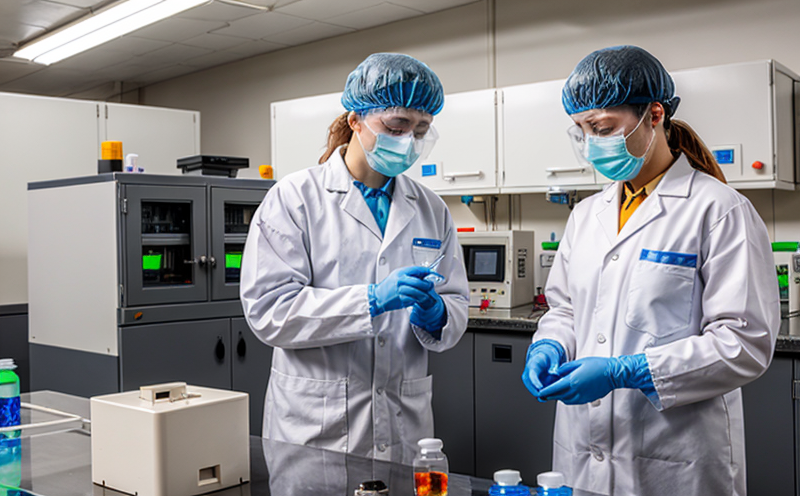ISO 27874 Acrylamide Residue Testing in Breakfast Cereals
The presence of acrylamide residues in food products has been a subject of increasing concern, particularly in processed carbohydrates like breakfast cereals. This service focuses on the specific testing procedure outlined in ISO 27874 for identifying and quantifying acrylamide residues in these cereals. Acrylamide is primarily formed during high-temperature cooking processes such as frying, baking, or roasting, which are common in cereal production.
The importance of this testing lies in its role in ensuring food safety standards and compliance with international regulations aimed at reducing consumer exposure to acrylamide. This service employs a rigorous analytical method that ensures accurate measurement and reporting of acrylamide residues, thereby supporting the quality assurance processes within manufacturing facilities.
Our laboratory adheres strictly to ISO 27874 guidelines for sample preparation, extraction, purification, and analysis using Liquid Chromatography with Mass Spectrometry (LC-MS/MS) technology. This advanced analytical approach allows for precise quantification of acrylamide down to the detection limit specified in the standard.
The testing process begins with the careful selection of representative samples from production batches or incoming raw materials. These samples are then prepared according to ISO 27874, which involves thorough grinding and homogenization followed by extraction using a suitable solvent. The extracted solution is subjected to further purification steps before final analysis.
Our laboratory uses state-of-the-art instrumentation for LC-MS/MS analysis, ensuring high sensitivity and selectivity required for accurate detection of acrylamide residues. This equipment allows us to meet the strict acceptance criteria outlined in ISO 27874, which specify both method validation parameters as well as limits of quantification.
Compliance with these standards is crucial not only from a regulatory perspective but also because it enhances consumer confidence and trust in the brand. By providing reliable test results that conform to international norms, our service helps manufacturers maintain their reputation for producing safe and high-quality food products.
Applied Standards
| Agricultural Standard | Description |
|---|---|
| ISO 27874 | Guidelines for the Determination of Acrylamide Residues in Food Products Including Breakfast Cereals. |
Benefits
The benefits of implementing ISO 27874 acrylamide residue testing extend beyond mere compliance; they encompass enhanced food safety, improved brand reputation, and reduced risk of legal action. By detecting even trace amounts of acrylamide in breakfast cereals early on during the production process, manufacturers can take corrective actions such as adjusting cooking times or temperatures to minimize its formation.
Such proactive measures not only protect consumers from potential health risks associated with elevated levels of acrylamide but also demonstrate a commitment to ethical business practices. This proactive stance strengthens brand loyalty and fosters long-term relationships with customers who value transparency and safety in their food choices.
In addition, adherence to international standards like ISO 27874 can open up new market opportunities by allowing companies to meet the stringent requirements set forth by various regions around the world. For instance, certain countries have implemented policies requiring acrylamide testing as a condition for importation or sale within their borders.
By leveraging our expertise in ISO 27874 compliance through this specialized testing service, food and feed processing companies can ensure they stay ahead of regulatory changes while maintaining consistent product quality across all markets.
Industry Applications
- Manufacturing facilities producing breakfast cereals
- R&D departments seeking to optimize production processes for acrylamide reduction
- Quality control laboratories ensuring batch-to-batch consistency in acrylamide levels
- Supplier verification programs aimed at identifying compliant raw material suppliers
- Compliance monitoring by regulatory bodies overseeing food safety standards globally





